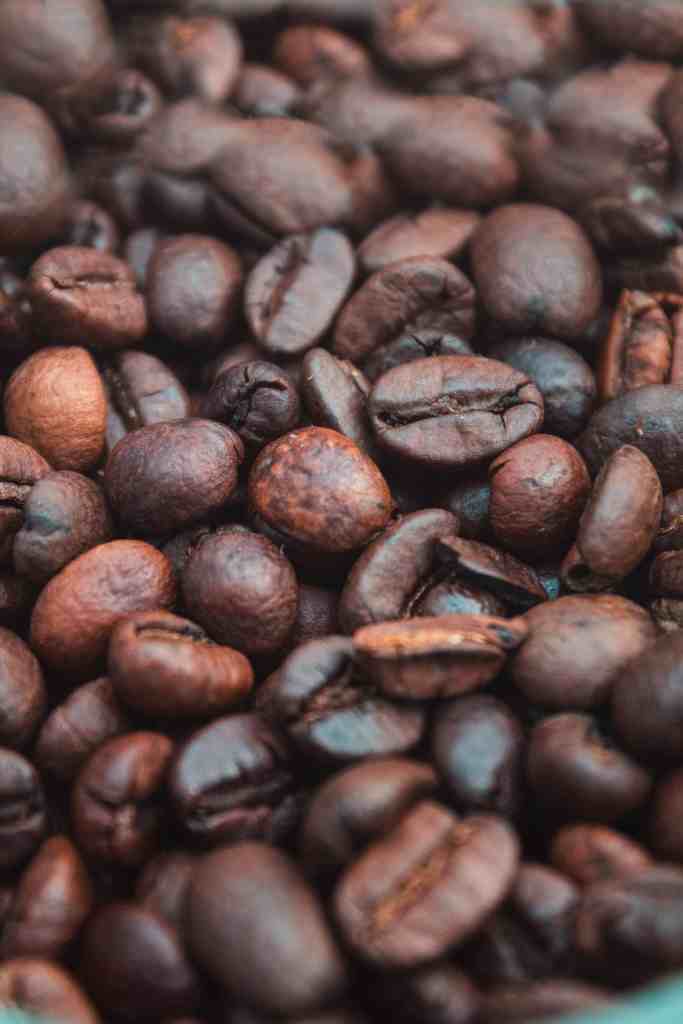How does a drink as bold and stiff as coffee have the fragility to stale so quickly?
Those who appreciate fresh coffee know there’s nothing worse than a bitter, rancid cup of stale coffee. It’s a taste you can’t forget!
We are going to dive in and look at what causes coffee to lose freshness. This helps us to better understand just how long coffee lasts.
CO2 is the culprit behind why coffee begins to stale!
How Coffee Loses Freshness
The Roasting Process
Did you know that roasting is where freshness begins to break down? Once the green coffee beans go into a roaster, the heat causes the gas to build up inside the beans. Both a chemical and physical change occurs in the beans while roasting.
CO2’s role in the coffee bean
- The smallest molecule found in a coffee bean is CO2 (carbon dioxide)
- CO2 is a gas
- The amount of CO2 present determines the coffee bean freshness
Chemical Change
The temperature of the coffee bean is what causes a chemical change.
As the coffee beans are roasted, the temperature within the bean itself rises. Gases form through a thermal, chemical reaction. The beans release some of this gas during roasting while the remaining gas becomes embedded inside the porous bean.

Physical Change
So now we know that our roasted coffee beans have CO2 (and other gases) trapped inside each bean. The coffee beans will continue releasing gas (called off-gassing or degassing) as they age and become less fresh.
The Grinding Process and Degassing
When roasted coffee beans go through grinding, gases are released.
- 87% of CO2 (carbon dioxide)
- 7.3% of CO (carbon monoxide)
- 5.3% of N2 (nitrogen)
Enemies of Coffee Freshness
Oxidation
When roasted coffee beans come in contact with air, oxidation unfortunately happens. As the beans off-gas and CO2 is expelled, the beans are left vulnerable to oxidation. This is because CO2 acts as a barrier against oxygen. Packaging or storing roasted coffee beans properly is the key to slowing down oxidation.
Time
Coffee, whether ground or whole bean, goes through a dramatic loss of CO2 in the first few days of storage. And, of course, the longer you store coffee, the more it stales.

Temperature
Several things can contribute to the loss of CO2 in your coffee.
- Exposure to a warm house or conditions where there’s heat (sun exposure, a hot kitchen, proximity to a heater or stove) causes continued degassing.
- Coffee beans: for every 10 degrees Fahrenheit increase in environmental temperature, degassing occurs at a rate of 1 ½ times.
- Ground coffee: degassing occurs twice as fast for every 10 degrees Fahrenheit increase in environmental temperature.
Humidity
If you live in a humid climate, you may find that your coffee goes stale quicker than it would in a dryer climate. Also, if you store coffee in the refrigerator or freezer, you may find it goes stale quicker than keeping it on the shelf. Pulling it out daily causes moisture to build up.
“Freshness is a religion”
Chahan Yeretzian
Striving for Coffee Freshness
When you purchase roasted or ground coffee commercially, the coffee has already undergone degradation. It’s challenging to pinpoint exactly when that package of coffee is considered bad. Most packaging has expiration dates.
The general rule is that coffee is freshest within 1-2 weeks of roasting. The Speciality Coffee Association conducted studies on the shelf life of coffee. The results were perplexing because it basically came down to the individual preference of what was considered stale.

Purveyors of roasted coffee beans are going to great lengths to ensure your coffee is fresh. They utilize several ways to package coffee beans to maintain freshness. The goal is to keep the CO2 inside the package and prevent oxygen from getting in.
- Vacuumed-sealed bags with degassing valve.
- Nitrogen flushing with vacuum sealing with degassing valve.
- Nitrogen flushing in coffee pods.
Tips for the Freshest Cup of Coffee
How long do ground coffee beans stay fresh if you store them properly? Through optimal storage, your coffee degrades slower.
How to Store Coffee
- Use airtight, opaque containers
- Store your coffee on a shelf in a dark/cool place at room temperature.
- Don’t purchase freshly ground coffee outside of a one-week supply.
- Grind your coffee beans yourself, and you will undoubtedly have the freshest cup of coffee!
How long can you keep ground coffee in the fridge?
Only 1-2 weeks. Again, it goes back to the build-up of moisture in the coffee if you choose this storage method. Check out our deep dive into how long ground coffee lasts.
How long do coffee beans last in the bag once opened?
There is a “use by” date on the package of coffee beans. This date applies to an unopened package. Once a bag of coffee beans is opened, and the seal is broken, transfer the beans into an airtight container.

How long does vacuum-packed coffee last that has been gas flushed?
Again, the “use by” date on the package applies to unopened vacuum seal coffee beans and grounds. Once open, the coffee will last 1-2 weeks.
The Last “Sip”…
A fresh cup of coffee is experienced differently in coffee drinkers. One may say that coffee that is a month old tastes great, whereas another may shudder at the thought of such a staled batch of coffee.
By understanding degradation in coffee, you at least have an idea what the “window of freshness” is to enjoy coffee at its best!